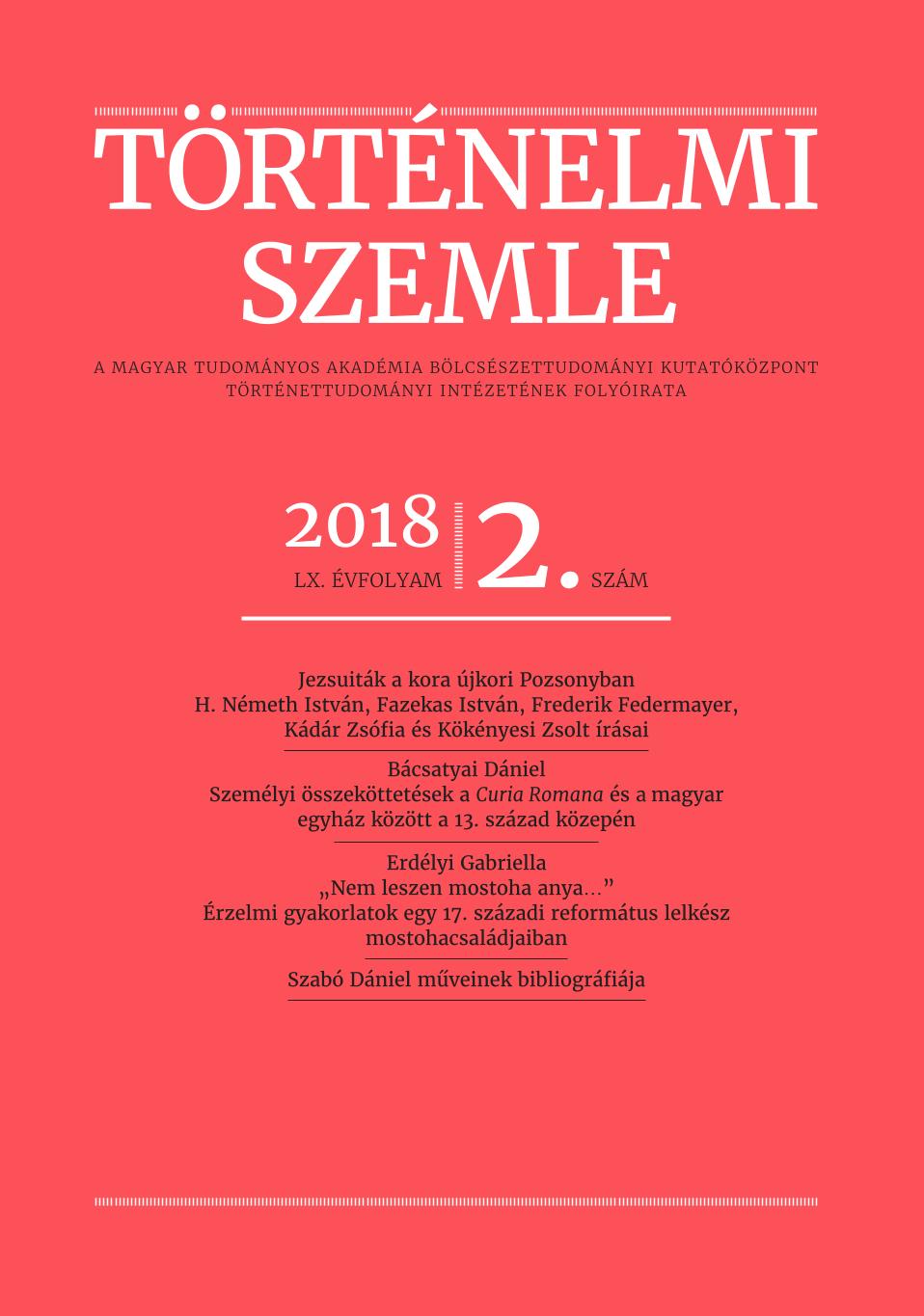Pozsony centrális szerepköreinek hatásai és jellegzetességei a magyarországi városhálózatban
The Impacts and Characteristics of Pressburg’s Central Roles within the Hungarian Urban Network
Author(s): István H. NémethSubject(s): Modern Age, Recent History (1900 till today)
Published by: Magyar Tudományos Akadémia Bölcsészettudományi Kutatóközpont Történettudományi Intézet
Keywords: public administration and policy; urban history; fiscal-military state
Summary/Abstract: The study explores the emergence and consolidation of Pressburg’s central role within the urban structure of Hungary in the 16th and 17th centuries, as well as its characteristics from an urban historical perspective, paying special attention to those urban political and social changes that were caused by the basic characteristics of early modern urban development. It approaches the role of Pressburg az a chief city from two directions. The first two chapters examine the medieval roots of the transformation of the free royal town into a national centre, its economiccommercial situation, and its political importance in early modern Hungary, thereby highlighting the role of Pressburg from an administrative and geopolitical perspective. The second part of the study, on the other hand, analyses the main junctures in the early modern history of the new capital of the kingdom, tracing the major restructuring of the local population: the increasingly intensive urban presence of bureaucrats, soldiers and nobility, and the conflicts of confession and power that opposed to each other the old and new members of the urban community.
Journal: Történelmi Szemle
- Issue Year: 2018
- Issue No: 02
- Page Range: 171-199
- Page Count: 29
- Language: Hungarian

